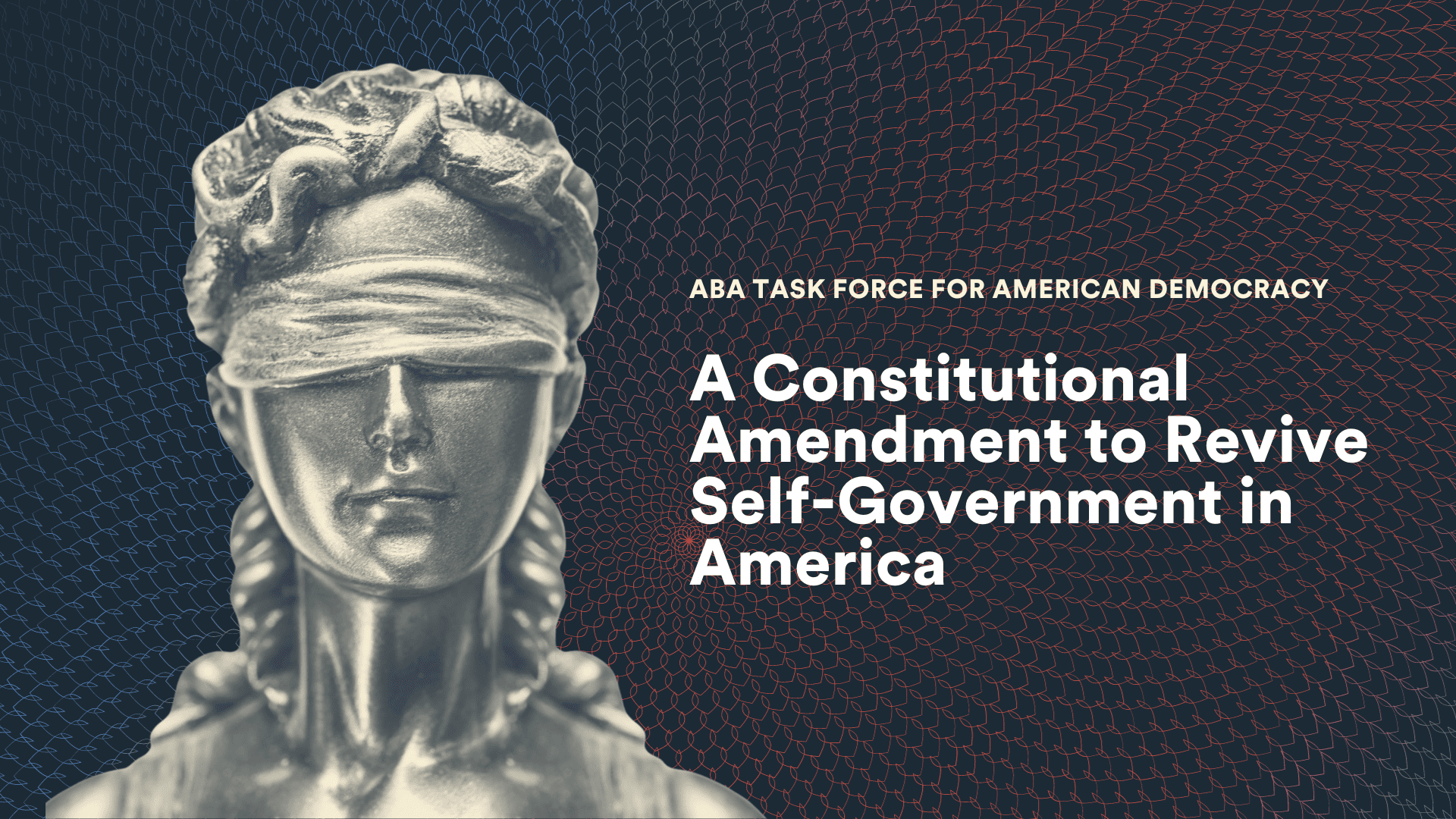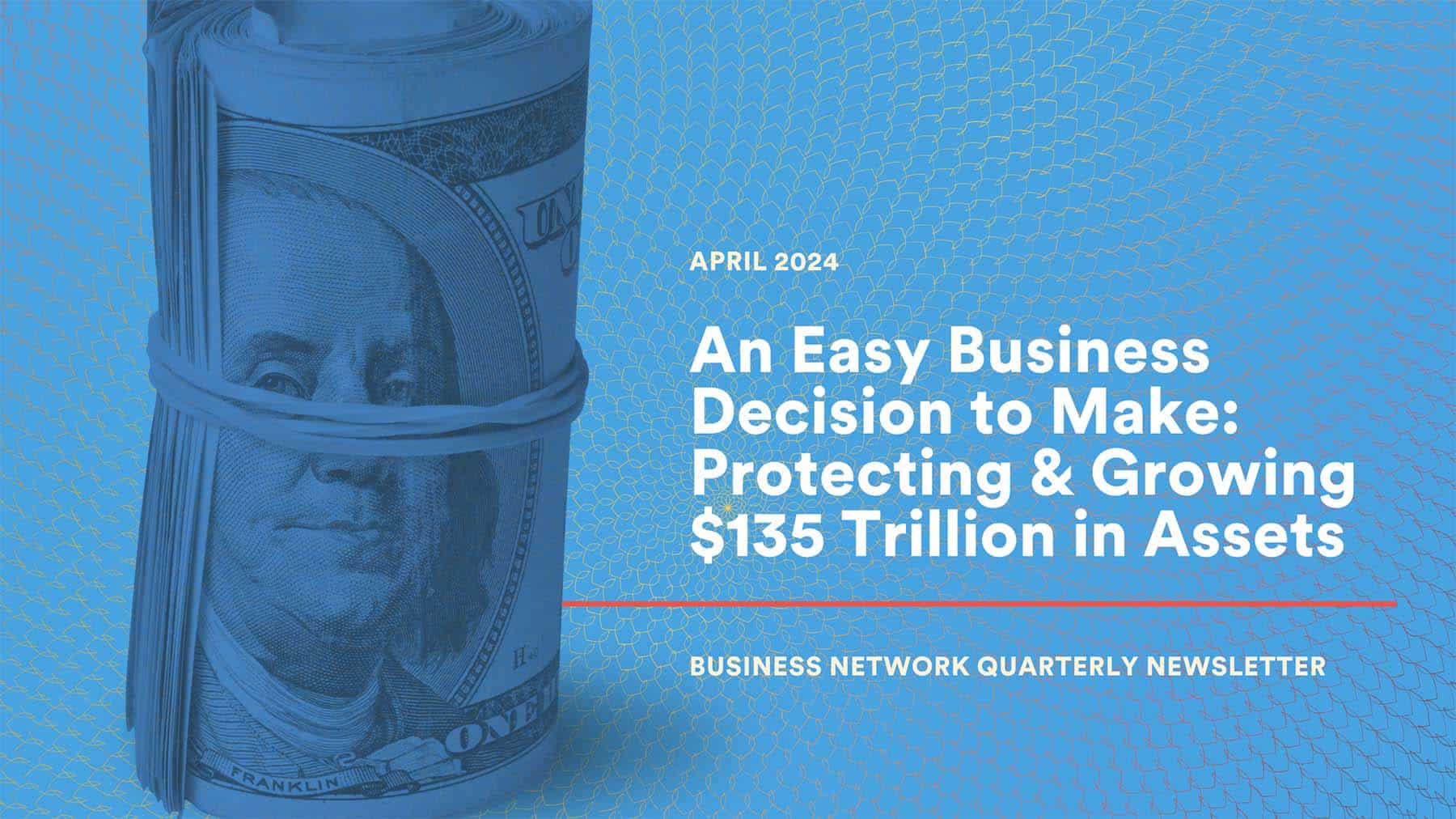To: Members of the Maine Ethics Commission
From: Brian Boyle, Chief Program Officer & General Counsel at American Promise
Date: February 28, 2024
Introduction
My name is Brian Boyle and I currently serve as Chief Program Officer & General Counsel at American Promise. Thank you for the opportunity to submit comments concerning the Commission’s proposed amendments to its rules to implement 21-A M.R.S. § 1064, which prohibits foreign governments from making contributions and expenditures to influence elections in Maine.
American Promise is a nationwide nonprofit organization that mobilizes broad, cross-partisan support for an amendment to the United States Constitution that would empower the States and Congress to set reasonable guardrails on money in our political system. We are proud to have nearly 6,000 supporters in the State of Maine, including several volunteer leaders who dedicate countless hours to educating their fellow citizens about a workable and enduring constitutional solution to the vexing problem of money in politics.
As explained more fully below, the Commission’s proposed amendments to its rules are reasonably and appropriately designed to implement the substantive policy contained in Section 1 of Ballot Question 2, which received the overwhelming support of 86% of Maine voters in the November 2023 election. I offer comments today both in support of the proposed amendments, and to urge the Commission to hold future hearings to implement the accountability provisions in Section 2 of Ballot Question 2.
Comments on Proposed Amendments
Foreign interests understand that America’s existing campaign finance system presents many opportunities to exert influence over policy in the United States. In recent years, they have not been shy in their attempts to influence ballot elections across the country. As the Commission is aware, foreign government-influenced entities have reportedly spent more than $100 million in Maine’s ballot elections over the past three years. In response to this threat, last November 86% of Maine’s voters passed Question 2 to prevent foreign government-influenced entities from spending money in the state’s elections. This was the largest margin of victory in the 115-year history of ballot questions in Maine, and it sent an unequivocal message: Maine voters want to safeguard the integrity of self-government by protecting their elections from foreign interference.
The Commission’s proposed amendments are carefully drafted to implement the statutory framework contained in Question 2 and to provide workable guidance to those subject to its provisions. In particular, the following features of the proposed amendments are worth highlighting:
- The proposed amendments clearly identify the types of public communications for which due diligence is required by media providers.
Section 7 of 21-A M.R.S. § 1064 requires a covered media provider to “establish due diligence policies, procedures and controls that are reasonably designed to ensure that it does not broadcast, distribute or otherwise make available to the public a public communication for which a foreign government-influenced entity has made an expenditure, independent expenditure, electioneering communication or disbursement in violation of this section.” Section 15(8)(A) of the proposed amendments makes clear that due diligence procedures are required only for public communications that qualify as a “campaign advertisement,” which Section 15(1)(A) reasonably defines as “a paid public communication to influence the nomination or election of a candidate or to influence the initiation or approval of a referendum.”
- The proposed amendments contain a reasonable “safe harbor” for media providers.
For media providers subject to the due diligence requirements of 21-A M.R.S. § 1064(7), the proposed amendments create a safe harbor. A media provider will be deemed compliant if it adopts a policy with five reasonable components. First, the policy must prohibit publication of a campaign advertisement if the media provider knows that it comes from a foreign government-influenced entity. See Section 15(8)(B)(1). Second, the policy must require any purchaser of a campaign advertisement to certify that it is not a foreign government-influenced entity or acting on behalf of one. That requirement can be satisfied in writing or by clicking a box online. See Section 15(8)(B)(2). Third, the policy must require preservation of those certifications for at least 2 years. See Section 15(8)(B)(3). Fourth, the policy must prohibit the media provider from publishing campaign advertisements that lack a certification or that have a certification which the media provider actually knows to be false. See Section 15(8)(B)(4). And fifth, if the media provider is an Internet platform, its policy must require immediate removal of prohibited campaign advertisements. See Section 15(8)(B)(5).
Taken together, these safe harbor provisions amount to a reasonable set of compliance measures for media providers.
- The proposed amendments clarify that individual entities below the 5% threshold do not qualify as foreign government-influenced entities.
The language in 21-A M.R.S. § 1064(1)(E)(2)(a) includes within the definition of “foreign government-influence entity” an entity “with respect to which a foreign government or foreign government-owned entity . . . has direct or indirect beneficial ownership of 5% or more of the total . . . applicable ownership interests.” The proposed amendments make clear that you can’t combine the ownership stakes of multiple entities to reach that 5% threshold. Per Section 15(2) of the proposed amendments, an individual entity will only qualify as a foreign government-influenced entity if its own ownership interests meet the 5% threshold.
Future Public Hearings Concerning Accountability for Support of a Constitutional Amendment
Section 2 of Ballot Question 2 (entitled “Accountability of Maine’s Congressional Delegation to the people of Maine with respect to federal anticorruption constitutional amendment”) contains important measures designed to ensure that Maine’s federal representatives in Congress are heeding the citizens’ call for a constitutional amendment to address money in politics. As set forth in Section 2(1)(C) of Question 2, the State of Maine has officially called upon Congress to propose an amendment to the United States Constitution that would “reaffirm the power of citizens through their government to regulate the raising and spending of money in elections.”
The need for such a constitutional amendment has never been clearer. Not long after Maine voters overwhelmingly approved Question 2, its underlying policy was challenged in federal court by foreign government-influenced plaintiffs that would be subject to its provisions. Unhappy with the decisive policy choice of Maine’s voters, those plaintiffs have turned to the judiciary for relief because decisions by the United States Supreme Court over the past five decades have emboldened such foreign entities to claim that they have a right—under the United States Constitution—to spend money in American elections, regardless of state or federal laws to the contrary.
For anyone who hasn’t been closely following the Supreme Court’s campaign finance decisions, it might sound absurd that foreign entities are asserting a constitutional right to spend money in our elections. How did we get to this point? Over a number of years, the Supreme Court has made itself the nation’s chief regulator of money-in-politics, and along the way it has decided cases that take most options off the table for policymakers in the States and Congress.
The crucial first step came in 1976 in Buckley v. Valeo. Although the First Amendment had been in existence for 185 years at that point, Buckley held for the first time that spending money in elections is a form of political expression and association that is protected by the First Amendment. Over the past five decades, the Buckley doctrine has created a system where the judiciary—and ultimately the Supreme Court—gets to have the final say on all issues of campaign finance. This has created a “legacy of inflexible central mandates (irrevocable even by Congress)” imposed by the Court over the electoral process. Cf. McIntyre v. Ohio Elections Comm’n, 514 U.S. 334, 371 (1995) (Scalia, J., dissenting).
Regrettably, the Supreme Court has not created a workable and enduring framework for dealing with money in politics, but a new constitutional amendment would do just that. I look forward to future Commission hearings, pursuant to Section 2(3) of Question 2, regarding “anticorruption amendment proposals introduced in Congress, and the members of Maine’s Congressional Delegation sponsoring such proposals.” Now more than ever it is critically important for the people of Maine to have an opportunity to voice their support for such an amendment to the United States Constitution.
Thank you for your consideration.
Brian Boyle
Chief Program Officer & General Counsel
American Promise






